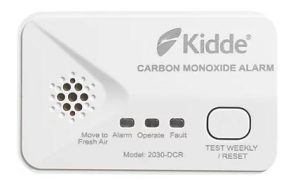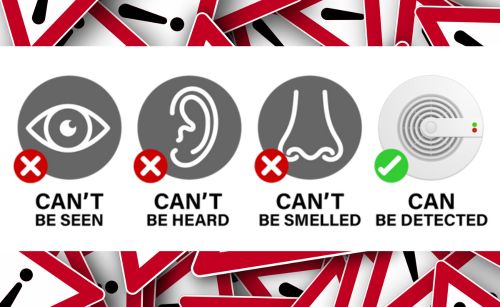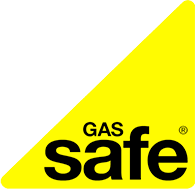Is my boiler leaking carbon monoxide? How do I know if my boiler is leaking carbon monoxide? Can my boiler release carbon monoxide if it is switched off? What should I do if I suspect my boiler or gas appliance has a carbon monoxide leak?
We’ve stressed the importance of an annual boiler service and offered guidance on maintaining your boiler to prevent carbon monoxide (CO) emissions. Today, we’re shifting our focus to warning signs that could signal existing dangers of CO in your home. Any of these indicators should raise alarm bells that your gas boiler may be leaking carbon monoxide and warrant an immediate call to a Gas Safe engineer.
What you’ll learn in this blog;
- What is carbon monoxide?
- What are the signs that your boiler may be leaking carbon monoxide?
- What you should do if you suspect your boiler is leaking carbon monoxide.
Firstly, what is carbon monoxide and why is it so dangerous?
Carbon monoxide is a colourless, tasteless, odourless, non-irritating gas produced as a by-product during incomplete combustion when fossil fuels burn without enough oxygen. If breathed in, carbon monoxide can make you seriously ill as it reduces the amount of oxygen that can be carried around your body, and can even be fatal.
The most common source of exposure to carbon monoxide for the general public is from cooking or other fuel burning appliances which are either poorly installed, faulty or used inappropriately.
For example, gas boilers that are installed incorrectly and the use of BBQs, wood, gas or coal fires and portable generators inside homes, caravans and tents. Inhaling smoke from a house fire may also lead to carbon monoxide exposure.
Signs that your gas boiler may be leaking carbon monoxide
⚠ Unusual Odours
If you detect an odd smell around your boiler, it may indicate that something isn’t functioning correctly. CO itself is odorless, but a strange smell suggests your boiler might not be burning fuel efficiently, which is a potential CO leak hazard.
⚠ Black Stains
The flue’s role is to expel fumes from your home, but if it fails in this task and these fumes are being emitted from the boiler into the home, this can create black stains, most commonly found on the ceiling above the boiler. When cleaning the area around your boiler, be vigilant for any discoloration.
⚠ Condensation
If you notice excessive condensation in the room where your boiler is located, it might indicate poor ventilation. To make condensation more noticeable, particularly in larger spaces, consider placing a mirror or picture frame near the boiler – this will then show condensation in a more obvious way.
⚠ Pilot Light Changes
The pilot light in a combi boiler is a visible gas flame, crucial for the boiler’s operation. If the pilot light frequently extinguishes, it could signify incomplete combustion, elevating the risk of CO presence.
⚠ Flu-like symptons
CO poisoning can lead to symptoms resembling the flu, including headaches, nausea, dizziness, fatigue and shortness of breath. The symptoms may come and go and they may get worse when you spend time in an affected room or building and get better when you leave or go outside.
If you think you might have carbon monoxide poisoning you should;
- stop using appliances you think might be making carbon monoxide (such as a boiler, cooker or heater) and turn them off at the power source
- open any windows and doors to let fresh air in
- go outside
- get medical advice as soon as possible – do not go back into the affected building until you have got advice
More information and what to do if you think you have been affected by carbon monoxide poisoning can be found on the NHS website here
If you are feeling ill and suspect you may have carbon monoxide poisoning, call NHS 111 straight away.
⚠ Carbon Monoxide Detector Alerts
Don’t dismiss CO monitor alarms as low battery warnings. The sound emitted when CO is detected differs from the low-battery beep. Press the test button to differentiate the two, and if the CO alarm triggers, don’t ignore it.
If any of these warning signs manifest in your home, it’s imperative to contact the National Gas Emergency Service number on 0800 111 999 without delay. Your safety is paramount.
More information on carbon monoxide can be found below
https://www.gassaferegister.co.uk/gas-safety/carbon-monoxide-poisoning/

Also see our other blogs;



